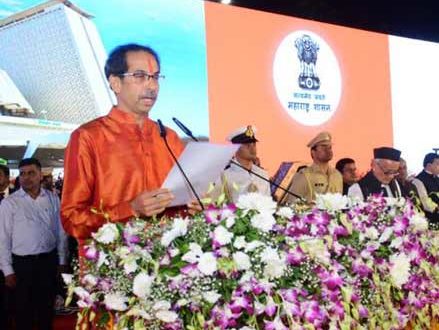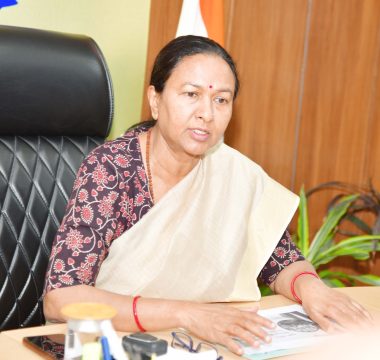DAINIK NATION BUREAU : Maharashtra Former Chief Minister Uddhav Thackeray has recently made a significant statement regarding the powers of the Election Commission in changing a political party’s name. Thackeray’s assertion brings attention to the authority and limitations of the Election Commission in regulating and overseeing political parties in the country. This article explores Thackeray’s remarks and their implications for the functioning of political parties and the electoral process.
The Role of the Election Commission: The Election Commission of India plays a crucial role in ensuring free and fair elections and regulating political parties. It is responsible for granting recognition to political parties, allotting party symbols, and monitoring their adherence to election laws. However, the extent of the Election Commission’s powers in changing a party’s name is a subject of debate and interpretation.
Uddhav Thackeray’s Assertion: Uddhav Thackeray, the Chief Minister of Maharashtra and the leader of the Shiv Sena party, has emphasized that the Election Commission does not possess the authority to change the name of a political party. Thackeray’s statement highlights the need for clarity and a proper understanding of the Election Commission’s jurisdiction and powers, especially in relation to renaming political parties.
Legal Framework and Interpretation: The legal framework governing the Election Commission’s authority does not explicitly provide for the power to change a party’s name. The commission’s role primarily revolves around granting recognition, symbol allocation, and monitoring compliance with electoral rules. Any decision to change a party’s name would typically fall within the domain of the party itself, subject to legal requirements such as proper notification and registration.
Implications for Political Parties: Thackeray’s remarks raise important questions about the autonomy of political parties in determining their identity and branding. A party’s name often holds significant historical, ideological, or sentimental value, and any change to it can impact its perception and public recognition. Thackeray’s assertion highlights the importance of political parties having the authority to make decisions regarding their names, while also complying with legal requirements and transparency.
Balancing Autonomy and Regulatory Oversight: The debate surrounding the Election Commission’s powers in changing a party’s name underscores the need for a delicate balance between party autonomy and regulatory oversight. While the commission plays a vital role in maintaining the integrity of the electoral process, it is crucial to ensure that its powers are well-defined and aligned with the principles of democratic functioning. Any potential expansion of the commission’s powers should be examined within the framework of existing laws and constitutional provisions.
Uddhav Thackeray’s assertion that the Election Commission does not possess the authority to change a party’s name raises important questions about the limits of the commission’s powers. As India’s democracy evolves, it is crucial to engage in informed discussions and deliberations on the roles and responsibilities of electoral institutions. This debate should aim to strike a balance between preserving party autonomy and ensuring effective regulatory oversight, thereby strengthening the democratic fabric of the nation.
 Dainik Nation News Portal
Dainik Nation News Portal


